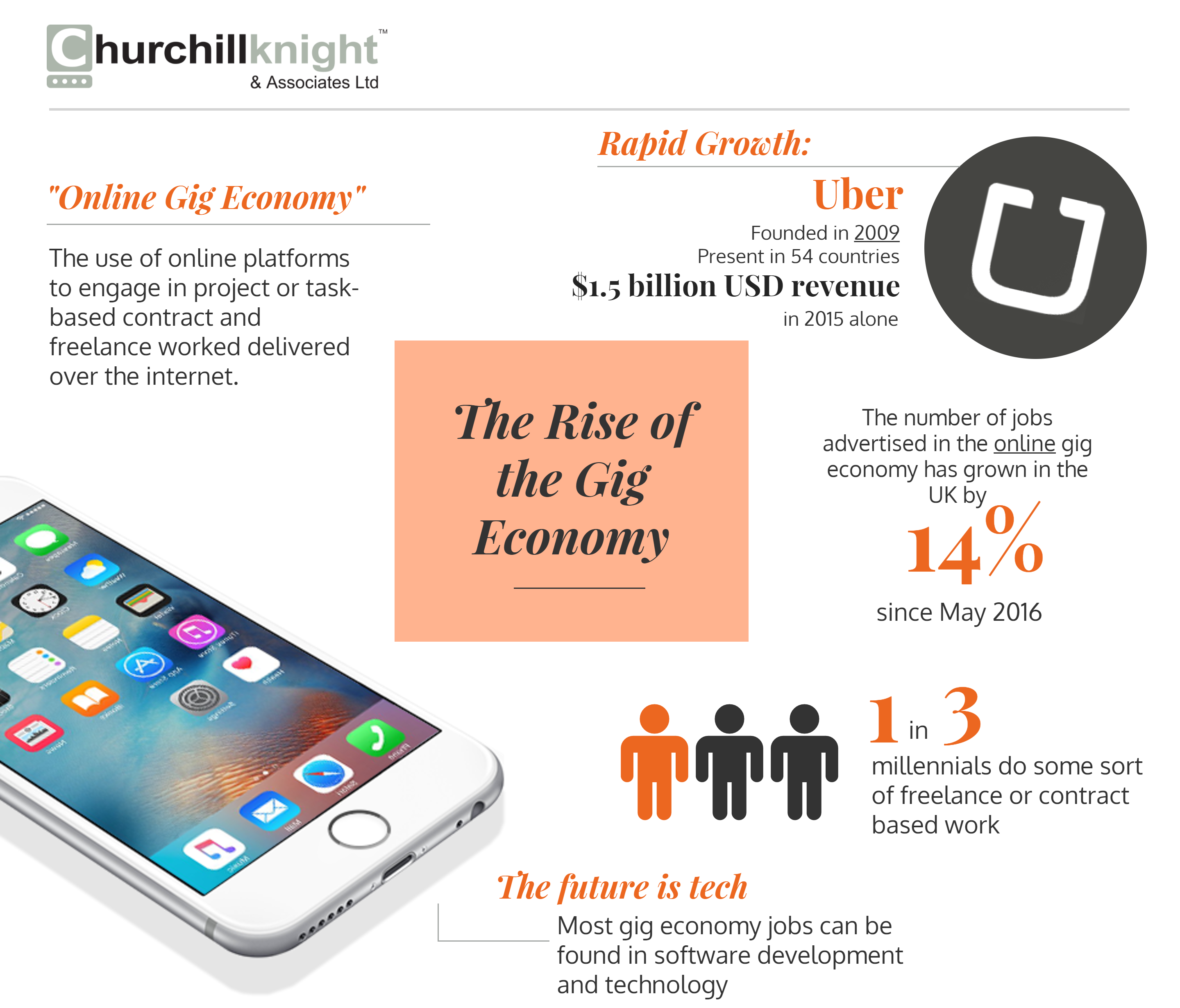Share this article

One of the fastest rising trends in the employment industry is the expansion of the gig economy, which involves contractors and freelancers engaging in short-term contracts that range in length from a few minutes to a few weeks.
We have already discussed the increase in the number of permanent employees moving to contracting, with recent reports now highlighting that this trend now extends to the gig economy.
The recent boom of companies such as Uber, Task Rabbit and Upwork means it’s becoming increasingly easy for people to find regular ‘gig’ work. This boom has led to a global work landscape change, with more and more people choosing to become ‘self-employed’ rather than stick to the mundane 9-5. This trend is set to grow, leading to greater opportunities for candidates, employers and recruiters. We explore some of these changes below.
For candidates, the gig economy offers flexibility and increased competition from clients for their services. Whilst leaving the permanent workplace and the securities it offers is a risk, for many the dramatic increase in the number of employers looking for their skillset heavily reduces the risk of leaving permanent employment.
For employers, the gig economy not only speeds up the process of recruitment, but it also opens up a wider marketplace and offers a considerably cheaper alternative to permanent hiring.
Recruiters are reporting that the gig economy adds new opportunities to the market, with many recruiters establishing ‘desks’ specialising in the gig economy. Margins in the gig economy may be small, but with such a large talent pool to choose from, this boom is providing great opportunities to savvy recruiters.
The expansion of the gig economy does bring its own problems and issues. This expansion has taken governments by surprise worldwide, with many present rules and regulations needing adjustments to manage this new marketplace. Previous successful initiatives such as the National Minimum Wage and guaranteed pension contributions are negated by the gig economy, meaning that regulations that were established to protect workers are now irrelevant for many.
Businesses such as Uber are experiencing tremendous growth riding on the gig economy movement. Whilst the company owns no cars and only has a limited number of permanent employees, Uber is expected to have over 42,000 drivers in London by the end of 2016, a rise from 16,000 in 2015. With Brexit creating uncertainty in the UK job market, it is clear that the gig economy is offering some stability to the UK market.
In order for the UK to fully benefit from the many opportunities that the gig economy creates, it will be necessary for both big business and government to address and embrace the various concerns that are beginning to emerge. Whilst the gig economy is providing a variety of opportunities, it is imperative for its success and future that any concerns are addressed.
Here are more interesting facts about the gig economy:

Are you considering a career in contracting or freelancing? Visit our website for more information about being self-employed and the benefits associated with working for yourself.
You may also like to read:
We're regularly adding new, helpful content
The Churchill Knight blog is regularly updated with helpful content for contractors and freelancers – especially articles that answer the most frequently asked questions about umbrella companies! Please pop back shortly to see the latest articles written by Andrew Trodden (Marketing Manager) and Clare Denison (Marketing Executive).
